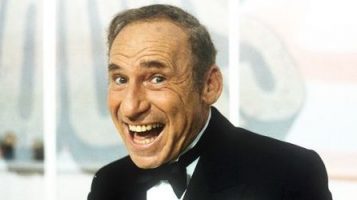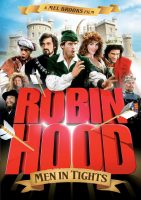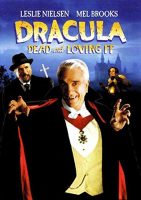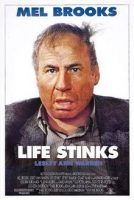
Let me begin by stating that I’ve been a big fan of Mel Brooks for decades.
As a kid, I loved “Get Smart,” the TV show he created with Buck Henry. In my teens, I laughed so hard at “Blazing Saddles” that I went back to the same movie theater the next day to see it again and told everyone I knew about it. “Young Frankenstein” is probably the greatest movie parody ever made. I didn’t discover “The Producers” and “Twelve Chairs” until I was in college, but loved them, too. I enjoyed his Hitchcock parody, “High Anxiety,” complete with a barking Charlie Callas and Barry Levinson stabbing Brooks in the shower with a newspaper. When Brooks turned “The Producers” into a Broadway musical, we made a special trip to New York to see it. And just last year, my wife and I paid big bucks to see Brooks in person at the The Wynn in Las Vegas, where he told stories from his 60-year career.
BUT…
I just watched two movies Brooks made in the 1990s that I had never seen, so I borrowed the DVDs from the library and sat down to see what I had missed. It turns out they are among the worst films I’ve ever endured. So bad, in fact, I couldn’t make it all the way through either of them.

Really, that’s the best the legendary Mel Brooks could come up with? It was as if he’d never read one of his earlier scripts to see how comedy worked.
In addition, his bombastic direction created more overacting than in a high school musical. No, make that elementary school. As for his leading lady, Amy Yasbeck, let’s just say she was no Madeleine Khan. It may not be fair to compare Yasbeck to one of the funniest actresses to ever grace the screen, but the difference was blindingly apparent. And boy, did Brooks miss Harvey Korman. Meanwhile, Brooks had Elwes doing lame puns and bad bits of physical comedy, a big comedown for the guy who had starred in Rob Reiner’s “The Princess Bride” six years earlier.


Its hard to point to exactly when Brooks’ movie-making skills began to wane, but I could easily make a case for 1991’s “Life Stinks.” In it, Brooks played a stinking rich businessman who bet a rival that he could live like a homeless person for a month. Howard Morris was the only one who redeemed himself opposite Brooks’ scenery-munching. Watching “Life Stinks,” I was never sure whether Brooks was trying to do social commentary on the plight of the poor, or merely wanted to do his own version of John Landis’ “Trading Places” without the benefit of Eddie Murphy and Dan Aykroyd. Whatever the reason, he failed.
After those three misfires, Brooks pulled back on the writing and directing reins, never making another movie. Instead, he started doing guest appearances on lots of TV shows (both live and animated), and working on the Broadway adaptation of “The Producers,” which debuted in 2001, swept the Tonys, and deserved every bit of the acclaim it received. What it didn’t deserve was being turned back into a movie, with Susan Strohman directing Nathan Lane, Matthew Broderick, and other members of the Broadway cast as living proof that stage acting and screen acting are not the same thing. It was a lesson I wish Eric Idle would learn before he continues trying to make a movie version of “Spamalot.”
Brooks tried to strike gold with a stage adaptation of another of his classics, “Young Frankenstein,” but it didn’t exactly set Broadway on fire. Good thing, because if he’d kept it up, he would have eventually gotten around to making his Robin Hood and Dracula disasters into musicals, too.
They would have been failures so miserable even Max Bialystock and Leo Bloom wouldn’t have produced them.
